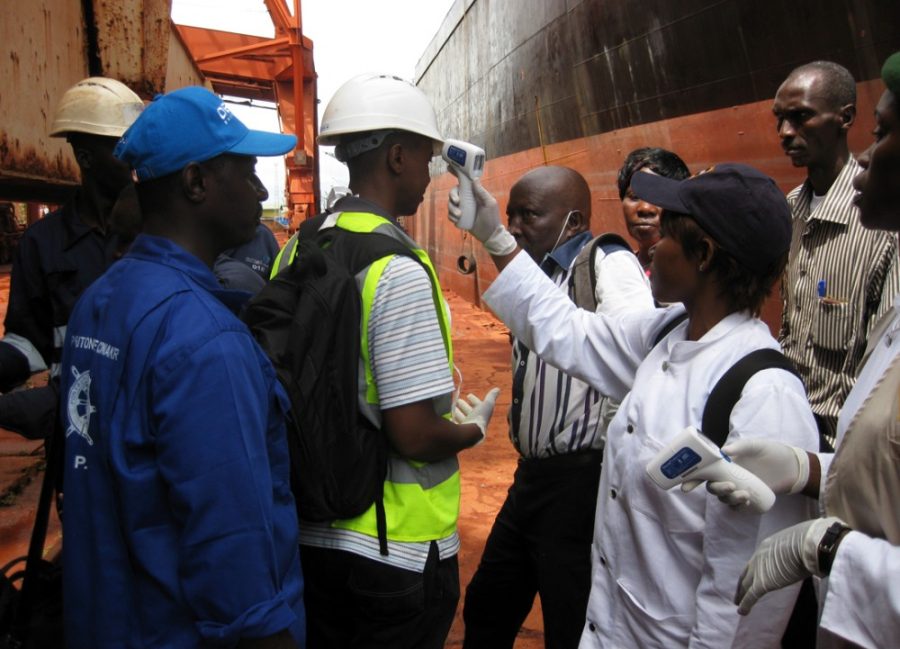Doctors associated with the UA are working to combat the Ebola virus crisis that is underway in West Africa.
Dr. Tom Kenyon, who teaches at the UA College of Medicine and director of the Centers for Disease Control and Prevention Center for Global Health, spoke on the Ebola crisis and how the UA can help. He said that we are experiencing the first Ebola epidemic in West Africa and that the epidemic is now heavily affecting Liberia, Sierra Leone and Guinea.
“[Ebola] has a very high fatality rate,” said Dr. Ronald Pust, a professor at the UA Mel and Enid Zuckerman College of Public Health. “You are about 50 percent or more likely to die without, or even with, treatment. There is no vaccine or proven medications at this point.”
The CDC recently made an announcement about drug therapies for Ebola.
“[The] U.S. Department of Defense has funded two companies that are developing drug therapies for Ebola and is working with another company to develop and antiviral drug to treat Ebola,” according to the CDC’s website.
Kenyon said he believes this epidemic is a threat to the global health security system. As the virus circulates, the risk of it spreading increases because the health system in West Africa has collapsed.
“Nobody is getting vaccinated, [tuberculosis] is not getting treated, AIDS is not getting treated, mothers who are pregnant are not getting antenatal care or safe deliveries and malaria is not being addressed,” Kenyon said. “There are a lot of other negative health consequences, and there are also overall security concerns, as we’ve now passed 3,000 deaths from this epidemic alone.”
Kenyon explained that his role within the U.S. government as the director of the CDC Center for Global Health has been to lead the public health response.
“We now have about 110 CDC public health specialists detailed to the [region], especially the three countries, working with government officials to get this under control,” Kenyon said.
Kenyon said that there are five responses he thinks are needed quickly and on a large scale. He said that the first is to set up a strong incident management team that will respond quickly and effectively.
“The second is to get Ebola treatment units put into place, where people with signs and symptoms of Ebola can get tested,” Kenyon said. “If they have Ebola, they can get care, and they can be isolated from their household and their community.”
Kenyon said that the third response is to strengthen infection control because the Ebola virus is commonly spread through contact between patients and health care workers.
Safe burial is the fourth response Kenyon emphasized, as Ebola is transmitted through contact with body fluids.
“There are traditional practices of cleansing the dead body and arranging for funeral burial and during that process, a lot of people pick up the virus because there is a lot of virus in the dead corpse that remains after the person passes away,” Kenyon said.
The fifth area of emphasis, explained Kenyon, is communication. The disease is new to the public in West Africa. Because of high levels of poverty, illiteracy and mistrust between the government and public, communication about the disease has not been as prevalent as health care providers would like, Kenyon said.
“There are a lot of misconceptions about transmission and that needs to be corrected if we are going to bring this epidemic to an end,” Kenyon said.
After spending time combatting the Ebola crisis in West Africa, Kenyon said he remains positive that the disease can be controlled.
“We can contain this,” Kenyon said. “It’s not a hopeless situation. It’s a very fast-moving and rapid epidemic, but we know how to control it and we’re optimistic we’ll be able to.”
_______________
Follow Brandi Walker on Twitter @brandimwalker









